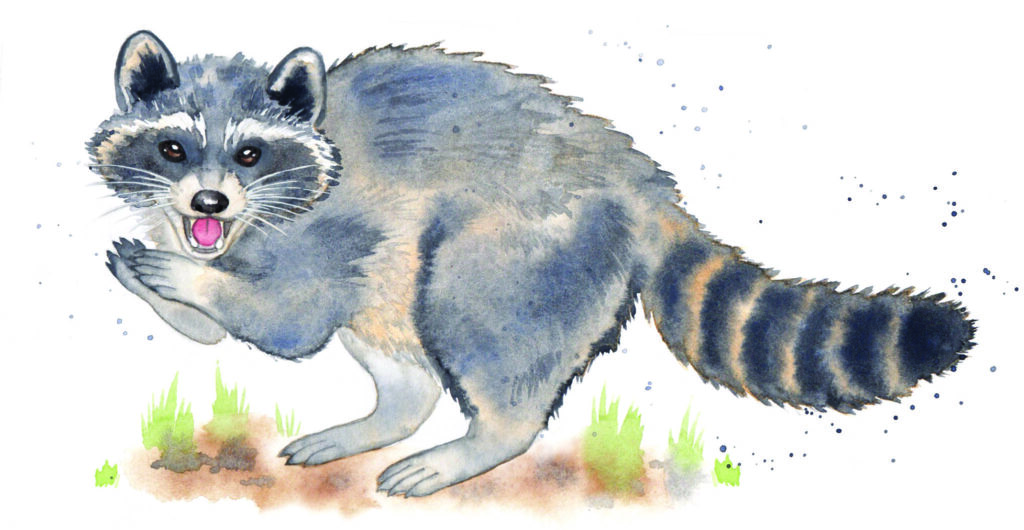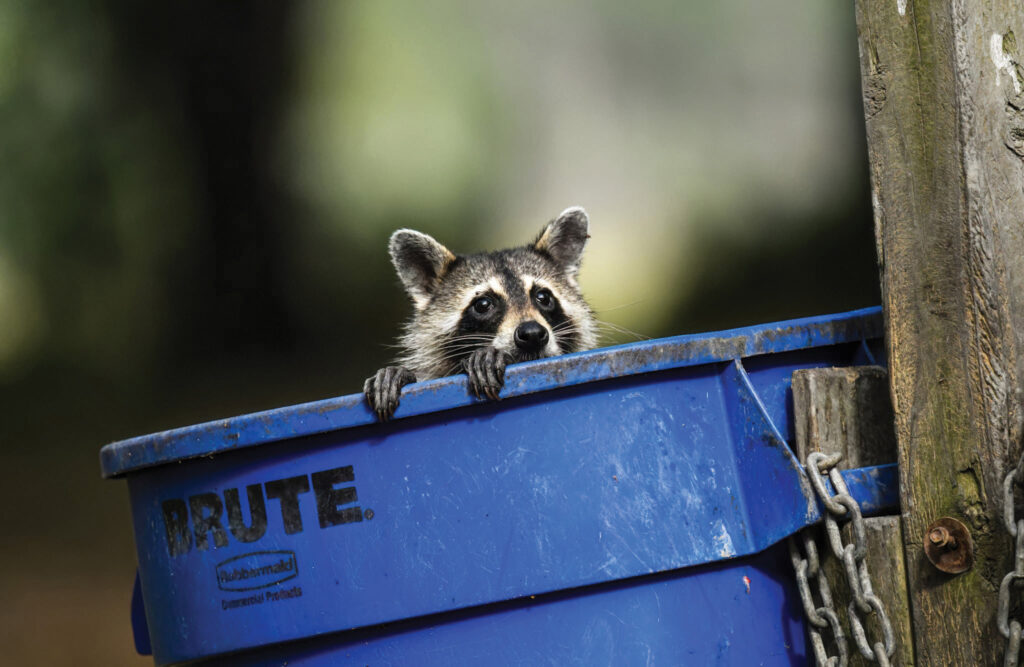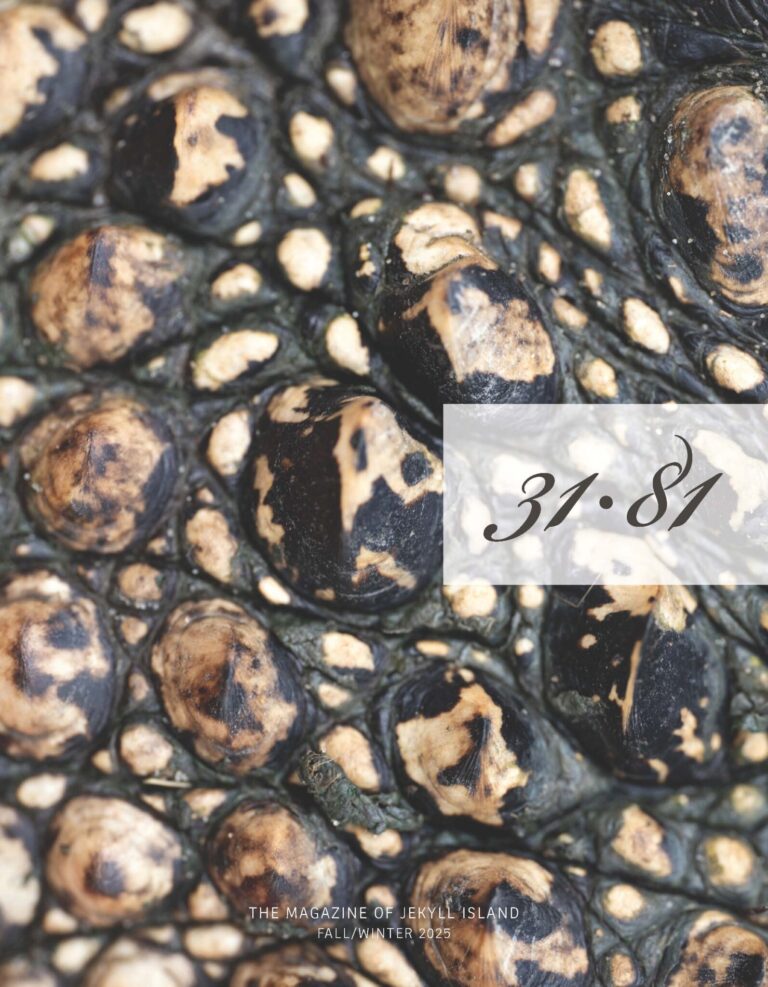Raccoons are the center of Jekyll Island’s food chain
By Tess Malone
This mischievous mammal is intelligent and curious—sometimes in the wrong ways. It can steal your trash. It can raid your picnic. It is also vital to
the ecosystem. Meet the raccoon, who has called Jekyll Island home since before the first colonizers set foot on the shore.
Raccoons impact the island in many ways. For one, they act as nature’s farmers when they dig for grubs and distribute seeds in the process. “They eat a wide variety of plants, especially seeds and soft fruits, so they spread a lot of good seed-producing plants all over our landscape,” says Yank Moore, the director of conservation for the Jekyll Island Authority. He even recalls the team finding a prickly pear growing in an oak tree, thanks to a raccoon’s waste. Raccoons are do-good exterminators, making meals of rodents, which helps prevent parasites from spreading; they are also opportunists, ever scavenging.
Raccoons might look like they’re washing their paws before digging in, but they are actually improving their tactile sensitivity, or ability to determine what they’re touching. Still, the misunderstanding gave them their name; the Algonquin word for raccoon, arukhun, meant “he who rubs, scrubs, and scratches with his hands.” While they are known for being scavengers, they have predators, too, regularly making up the diet of raptors, alligators, and snakes on the island.

“Raccoons are very smart. They use tools to open mussels and clams, and they have a complex series of vocalizations, facial expressions, and body language that they use to communicate,” notes Jekyll Island Authority wildlife biologist Joseph Colbert.
Their mischievousness is well-documented. The Jekyll Island Authority has a wildlife incident reporting system with on-call staff, and raccoon reports have made up more than 25 percent of the calls since 2019. The biggest cause of rogue raccoons is human error, such as leaving open trash cans or intentionally feeding them, encouraging them to come back for more. To combat this, businesses on the island are required to have compactors that prevent wildlife from opening them, but residents need to make their garbage pest-proof, too, so that raccoons can prioritize their other duties.


